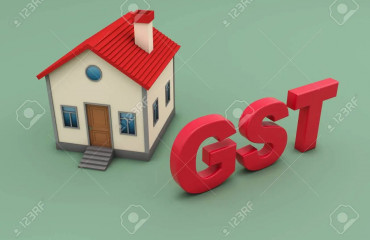
As Union Finance Minister Nirmala Sitharaman is all set to table the Budget 2024-25 in the third week of July, India's real estate sector hopes for a series of reforms and incentives that can drive growth and address longstanding challenges. Expectations range from increased rebates on home loan interest rates, GST rate reductions, single-window clearance systems, reduced property prices, and promoting off-centre locations.
As Union Finance Minister Nirmala Sitharaman is all set to table the Budget 2024-25 in the third week of July, India's real estate sector hopes for a series of reforms and incentives that can drive growth and address longstanding challenges. Expectations range from increased rebates on home loan interest rates, GST rate reductions, single-window clearance systems, reduced property prices, and promoting off-centre locations.
Speaking to LiveMint, Pradeep Aggarwal, Founder & Chairman of Signature Global (India) Ltd. and Chairman of ASSOCHAM National Council on Real Estate, Housing, and Urban Development, said the real estate sector anticipates key reforms, including granting industry status to attract investments and streamline regulations.
"A simplified single-window clearance system will expedite project approvals and reduce delays. Revising GST input tax credit rules will lower property prices and increase transparency. Raising the home loan interest rebate under Section 24 to ₹5 lakh will boost demand. Increased budget allocations for urban infrastructure and lower stamp duty rates, or waivers for first-time homebuyers, will stimulate growth," he said.
"Expanding affordable housing to include homes up to ₹75 lakhs with larger carpet areas and relaunching the CLSS scheme will benefit homebuyers. Continued investments in infrastructure, housing, and urban development are crucial for sustained growth, job creation, and improved living standards, paving the way for India to become a developed nation by 2047," Aggarwal told us.
Similarly, CREDAI NCR Bhiwadi Neemrana President Anil Gupta said initiatives promoting off-beat locations and boosting affordable housing would be pivotal in expanding the market's reach and inclusivity. The reduction in home loan interest rates would bring a much-needed boost to the inflow of prospective buyers in the sector, he said.
"We also anticipate potential GST rate reductions and initiatives to stabilize material costs, which would significantly benefit both developers and homebuyers. With these strategic interventions, we envision a vibrant real estate landscape that not only meets the aspirations of homebuyers but also fuels economic resurgence across the nation," Gupta said.
In addition, another critical aspect is the proposal concerning input tax credits under GST, which is crucial for companies leading the sector into this new era and can boost sectoral growth for homebuyers and drive economic recovery, said NeoLiv founder and CEO Mohit Malhotra.
"We anticipate new development opportunities with increased infrastructure funding, making city centres more accessible for mid-range housing projects. We hope the budget recognizes the potential of this segment and includes provisions for robust financial support and transparent policies, empowering developers and fostering housing sector growth," he said.
Rahul Sharma, Director of India, International Zinc Association, expects the Narendra Modi-led NDA government to prioritise infrastructure safety and quality, increase funds for existing infrastructure maintenance and upgrades, and provide incentives for innovative construction technologies in the real estate sector.
"By prioritizing infrastructure, the Budget aims to improve citizens' quality of life, create jobs, and drive economic prosperity, ultimately strengthening the foundation for a 'Viksit Bharat.'" Galvanization is important in preventing corrosion, thereby reducing structural failures and maintenance costs. Utilizing galvanized steel also promotes sustainability by extending the lifespan of infrastructure," he added.
